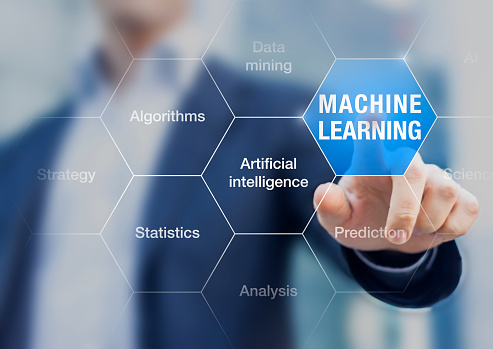In a nutshell…Alzheimer’s Disease is not easy to diagnose in its early stages. Scientists recognize and have concluded for quite some time that because Alzheimer’s disease progresses gradually, the diagnosis often does not occur until the structural changes of the brain have already taken place, making it difficult to see on imaging results. At the German Center for Neurodegenerative Diseases (DZNE), biomarkers are being used to help identify and predict the likelihood of a patient who will suffer from this disease. This Artificial Intelligence (AI) is leading the way to earlier detection of Alzheimer’ Disease. These 1000 plus scientists are using a Memory-Driven computing system that will have the ability to identify patterns with ‘vast collections of data 100x faster than ever before, accelerating progress towards finding a cure.’ [2] This type of technology is known as Machine Learning and is classified as type of AI. It enables computer programs to identify and learn when new data is being obtained without having to construct another computer program. ‘Researchers have coupled machine learning methods with a special MRI technique that measures the perfusion, or tissue absorption rate, of blood throughout the brain to detect early forms of dementia, such as mild cognitive impairment, according to a new study.’ [3] Once the brain has damaged brain tissue, there is not way to repair it and bring it back to a healthy state. It is with this in mind that the scientists are scrambling to figure out a way to detect this disease before it begins to damage the brain’s tissue. When an individual understands that they are not cognitively as sharp as they once were, but testing does not yet show that dementia is present, this is referred to as Subjective Cognitive Decline [SCD]. There is also Mild Cognitive Impairment (MCI) that is considered to be an intermediary stage dementia; it goes beyond the expected age related cognitive decline where the dementia becomes more severe in nature. Judgment can be called into question, difficulty with language, memory, as well as thought and decision-making problems. In addition, the ability to manage medications or even a decline in eating skills can occur. These automated Artificial Intelligence systems can help to effectively discern those who have Alzheimer’s Disease in the earlier stages of MCI and SCD. The machine learning, ‘uses classifiers based on the automated machine learning training, the researchers were then able to predict the Alzheimer’s diagnosis or progression of single patients with a high degree of accuracy, ranging from 82 percent to 90 percent. If the disease process from SCD to MCI to Alzheimer’s disease could be intercepted or slowed, this technique could play a role in screening.” [4] Once scientists are able to recognize certain patterns and the differing stages and levels of cognitive impairment and decline, early detection can occur. [1] Sciencedaily.com [2] Hewlett Packard Enterprise (HPE) [3] Radiological Society of North America [4] Radiological Society of North America
Alzheimers’ and Artificial Intelligence
[1] There is still no definitive way to identify if mild cognitive dementia will ultimately progress to Alzheimer’s Disease.





